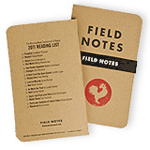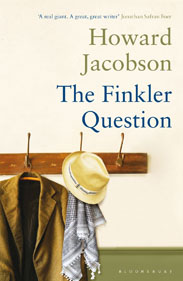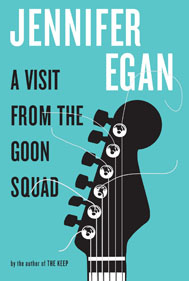-
March 22, 2011
Quarterfinals
-
Commentary by
Kevin Guilfoile & John Warner
-
Today’s Winner:
2A Visit From the Goon Squad
John: I’m hesitant to comment on Elif Batuman’s judging commentary because I have the sneaking suspicion, getting close to certainty (in the same way Donald Trump is close to baldness), that she’s better read, smarter, and cleverer than me. Anyone who can turn the reading of Russian novels into the subject of a surprise bestseller clearly has some skills I lack.
She also recently demolished just about everything I’ve done, currently do, or am interested in with a lively and thorough review of Mark McGurl’s The Programme Era: Postwar Fiction and the Rise of Creative Writing in the London Review of Books, an outlet that I’m not only sure wouldn’t publish anything I have to say, but one where I lack a base of knowledge that would make me capable of even fully understanding what they publish, despite reading each issue as faithfully and closely as possible.
Batuman’s review is headlined, “Get a Real Degree,” the real degree not being the one I have, the MFA in creative writing. (I also received an MA in literature in a kind of two-for-one deal they were having at the time.) It’s a testament to Batuman’s smarts and skill that for the most part, I was nodding along, rather than gnashing my teeth at her review/essay, but after making my way through the 8,000 or so words, I felt pretty bloodied. “Programme” fiction is categorized as technically sound, but without substance, fostered by an ethos that values “creativity” over a deep engagement with the history of the novel, which results in the production of “excellent fiction” instead of “great literature.” She identifies creative writing as an industry, one that exists for its own self-perpetuation, reinforcing a set of values (“write what you know,” “find your own voice”) that further seals it off from the things that serious literary scholarship of the Ph.D. variety can do. She nods approvingly at James Woods’s takedown of what he calls “hysterical realism” a term that I’m pretty sure describes a lot of my own stories.
 Buy anything from Field Notes from now until the end of the ToB and receive a special “reading list” memo book free, while they last. Use coupon code ROOSTER.
Buy anything from Field Notes from now until the end of the ToB and receive a special “reading list” memo book free, while they last. Use coupon code ROOSTER.The reason I can’t get too bent out of shape about all this, even as my feelings are bruised is because she isn’t exactly wrong. There’s some corners of the academic creative writing world that are absolutely guilty as charged. The MFA (and now Ph.D.) programs are increasingly a kind of pyramid scheme designed to provide safe employment for creative writers who otherwise couldn’t support themselves financially. Though, this makes them different from most Ph.D. programs in the humanities not at all. Batuman seems to locate greater intrinsic value in the study of literature in the Ph.D. vein, but that reads like a personal choice to me.
There are thousands of books published every year that fetishize creative writing technique over the substance Batuman’s looking for, and let’s not even get into the proliferation of journals on the internet. I’m pretty certain there’s a lot of non-literature going on out there, and that I’m guilty of producing some of it. I’m even guilty as charged in playing the naïf here, aw-schucksing over how I’m just a simple man with simple thoughts when the truth is, I’ve read and thought more about literature than 99.5 percent of the population, essentially devaluing something I and Professor Batuman both find valuable.
It’s a pose, no doubt, one that creative writing programs perpetuate to separate themselves from their stuffy academic brethren, even as they desire the respect the more rigorous Ph.D. demands. I don’t teach in a creative writing program—I work exclusively with undergraduates, and as a lecturer at that—but I’d like to, so hopefully someday I’m going to become an even bigger part of the problem.
She’s also definitely right that writers studying writing are better served if they’re looking at the history and traditions of what they’re doing and that MFA programs that privilege the workshop model may be overlooking this. On the other hand, the most valuable class I took during my graduate program was a literature course on “The History of the Novel,” where we read 16 books over 16 weeks (including Ulysses!) and I learned that nothing new is new, or that Laurence Stern was writing “hysterical realism” in the middle of the 18th century. I don’t think her image of MFA programs is erected from straw, exactly—I think she’s right, except when she isn’t, which is to say that people outside the experience don’t really know what’s happening inside a specific experience. Her conclusions may be generally true, but this does not make them universal.
It is nice to get a reminder that there’s something more interesting beyond our own navels, but if we’re going to hold our creative writers to the standards of literature, we won’t have all that much to talk about.
All of this is a long-winded way of saying that I felt challenged (in a good way) by Batuman’s LRB essay, and am impressed with her take on these novels as well.
I’m sort of surprised she finds so much to like in Finkler in the end, since, despite lacking a programme fiction pedigree, it fits most of the criteria for inclusion, particularly in its fineness of technique over the depths of its meaning.
Ditto that she was won over by Goon Squad. The story cycle is one of the MFA program’s oldest saws, a way around the difficulty of writing and workshopping a novel. That Egan pulls this off with aplomb suggests the trouble with programme fiction (though to be clear, Egan has no MFA) is not in concept, but execution, which is the problem with all fiction, when you get right down to it.
I’m not as much a Goon Squad lover as some, but I read it eagerly, continuously, and Finkler stopped me dead in my tracks, so I’m quite comfortable with the verdict.
Kevin: There should be an MFA program for thriller writing and I should teach it. We’d do a week on the ticking clock, a week on the Maguffin, and we’d also have a research week in which every student would, as my friend (and former ToB judge) Marcus Sakey did recently, get pepper-sprayed in the face by a cop.
That was at Marcus’s request, just to be clear, and not at the end of some St. Patrick’s Day bender.
We mentioned David Foster Wallace in yesterday’s commentary so we might as well do it again today. Perhaps the funniest story in Goon Squad is a parody of celebrity profiles, done in the style of D.F.W.’s nonfiction. Actually, I think it would be more accurately described not as a parody of David Foster Wallace’s work, but as a parody of writing that has been overly influenced by David Foster Wallace.
As a college professor, you are no doubt aware of this even more than I am, but there are a ton of unpublished manuscripts out there that have D.F.W.’s influence all over them. I’ve seen a lot of it—in workshops I’ve taught and just from young writers who want me to read something—and because D.F.W. was such a singular voice (you will recall a story Wallace wrote under a pseudonym for an early issue of McSweeney’s that was immediately identified by everybody as his) it almost always comes off as parody, no matter how heartfelt the tribute.
Wallace remains this amazing and peculiar figure—perhaps the most influential writer of his generation, yet one with no successful imitators.
Egan is an expert mimic and she gets away with it here, tongue conspicuously in cheek.
I know we did the sponsor thing last week, but we have a quick update. On Friday, Field Notes introduced the very cool Dry Transfer edition of its classic memo books. I’ve already ordered mine.
Time to check in on the Zombie results and we see that, with Finkler’s demise, they remain unchanged. If the Zombie Round were held today, Room and Skippy Dies would still be our reanimated combatants.
Tune in tomorrow to see of Nox nixes Next or Next nips Nox, natch.
Kevin Guilfoile is the author of two acclaimed novels, Cast of Shadows and The Thousand, which have been translated into more than 20 languages.
John Warner’s novel, The Funny Man, will be released late September of this year by Soho Press. For the time being, he teaches at Clemson University.

















